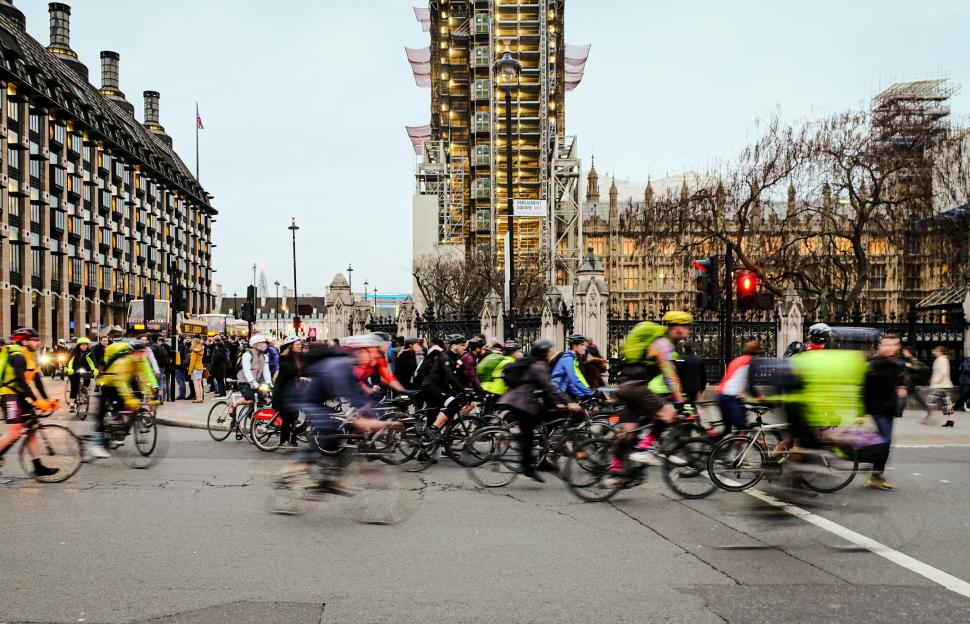A coalition of academics, health groups, cycling organisations and other major bodies have written to Labour’s Chancellor Rachel Reeves calling for active travel funding to be increased to 10 per cent of the overall transport budget.
Cycling UK, British Cycling, Greenpeace, The Centre for Mental Health and The Association of Directors of Public Health are among the 18 organisations to have asked the Chancellor to “significantly increase investment in walking, wheeling and cycling”.
Saying “there is no time to waste” with health services “under strain” and “immense pressure” on public finances, the experts and representatives from major organisations urge the Chancellor to scale-up active travel spending to £50 per head and in turn “begin to address at least three of the government’s top missions: kickstarting the economy, building an NHS fit for the future and accelerating to net zero”.
In August, Transport Secretary Louise Haigh pledged “unprecedented levels of funding” in cycling as the party got to work after its landslide election victory earlier in the summer.
In what was described as a “backward move” by campaigners, the previous Conservative government slashed the budget for active travel schemes in England outside London during a Budget last spring, a decision that critics say makes it “impossible” to meet Net Zero and cycling and walking targets.
> High Court judge dismisses legal challenge to government’s cycling funding cuts
Writing to the Chancellor ahead of tomorrow’s Autumn Budget, the organisations concluded: “With the right commitment, together we can transform our villages, towns and cities into healthier and more liveable spaces. Investing in walking and cycling won’t just help to balance the budget — it would be a promise to prioritise our health, our economy, and our planet.”
“We urge you to significantly increase investment in walking, wheeling and cycling”
Alongside the previously mentioned groups involved, the letter was also signed by the London Cycling Campaign, CamCycle, Transport Action Network, UK Health Alliance on Climate Change and academics from Edinburgh Napier University, Swansea University, and UWE.
In full, the letter says:
Dear Chancellor,
We write to you as experts and representatives from major organisations in the health, transport and environment sectors ahead of the Autumn Budget to urge you to significantly increase investment in walking, wheeling and cycling.
With health services under strain and immense pressure on public finances, there is no time to waste to bring about investment that will deliver vital financial returns while also bringing about wider societal benefits. By scaling up investment to £50 per head, or 10 per cent of the current transport budget, in walking, wheeling and cycling by the end of this Parliament, we can begin to address at least three of the government’s top missions: kickstarting the economy, building an NHS fit for the future and accelerating to net zero.
As a nation we urgently need to build more activity into our daily lives. Just last month, a landmark IPPR report highlighted how economic inactivity due to sickness could hit 4.3 million by the end of this Parliament, up from 2.8 million today. Compared to commuting by car, cycling lowers the chance of passing away from cardiovascular disease by as much as 24 per cent, and as much as 16 per cent for cancer.
We also know that transport is the biggest contributor to air pollution, which causes tens of thousands of deaths in the UK every year. If the government is serious about supporting the NHS by preventing illness rather than just treating it, it needs to recognise how walking and cycling can help build a service fit for the future in tandem with supporting a stronger workforce that relies on it less.
As well as improving the nation’s health, this investment also brings significant economic benefits. Walking and cycling have very high returns for taxpayers’ money, at £5.62 for each £1 spent, at least three times the returns of road building. Research consistently shows that people who walk and cycle into town centres also spend more per month than those who arrive by car.
In London, TfL revealed that investment can boost retail spending by up to 30 per cent in some areas. This could contribute to the government’s mission to save our high streets and boost overall economic growth.
Investment in walking, wheeling and cycling also stands to benefit those in society who need the most support. Currently, the UK’s poorest households are more than four times as likely to have no access to a car as the wealthiest. That translates to an estimated 4.5 million households who rely on walking, cycling and public transport as an affordable way to get to work, training and leisure opportunities.
Despite all the benefits, England has been lagging behind other European countries in its investment in walking, wheeling and cycling and even within the UK itself. The Scottish government has been increasing funding and is committed to spending 10 per cent of its transport budget on walking and cycling, and Northern Ireland has a legal obligation to allocate the same spend. England, on average invests only 2 per cent on active travel, although currently the funding is considerably lower.
To help fill the fiscal black hole, meet the government’s own missions, and embrace the vast benefits of walking and cycling, we urge the government to invest 10 per cent of the overall transport budget in walking, wheeling and cycling by the end of this Parliament, or roughly £2.5bn a year. Estimates show that the overall return on investment could be between £8bn and £38bn per year.
With the right commitment, together we can transform our villages, towns and cities into healthier and more liveable spaces. Investing in walking and cycling won’t just help to balance the budget — it would be a promise to prioritise our health, our economy, and our planet.

